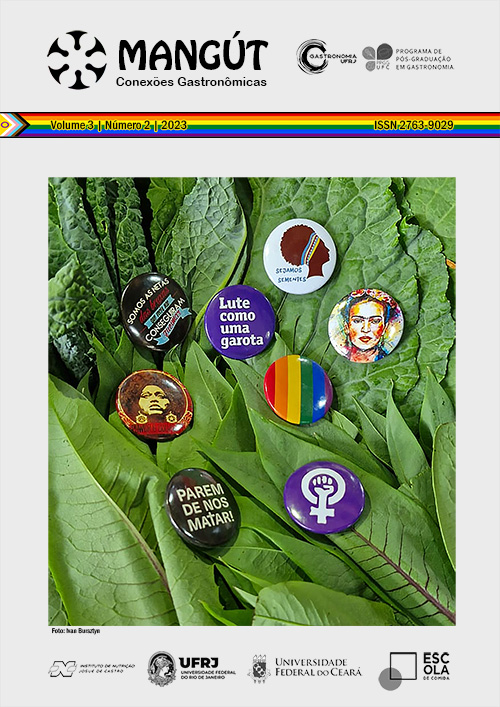“Mulheres de tacho”: the education for domestic work in the rural district of Taquari (1940-1960)
DOI:
https://doi.org/10.70051/mangt.v3i2.61242Keywords:
Gastronomy, Rural neighborhoods, Division of labor, Care workAbstract
This text aims to reflect on education for domestic work, through the perspective of food and culture, taking as its focus the rural neighborhood of Taquari, located in the municipality of Leme, in the interior of São Paulo, in the middle of the 20th century. The analysis is based on a bibliography about the traditional ways of life of the region's inhabitants and their economic and social relations, plus the accounts of my maternal grandmother, who was born in the neighborhood, about her childhood memories. It can thus be seen that education for work and for fulfilling social functions is marked by the division between the male and female genders, which materializes in children's daily practices and experiences. In a dichotomous way, in this context, visible work, referring to activities that involve financial remuneration, is associated with men, while domestic work – which includes, among other tasks, preparing food and meals – is linked to women. In this sense, this text reiterates the importance of valuing women's experiences, as well as the dimension of care work, essential activities for maintaining life, society and economy.
Downloads
Published
Issue
Section
License
Copyright (c) 2024 Ana Júlia Galassi Gobesso

This work is licensed under a Creative Commons Attribution 4.0 International License.
Autores que publicam nesta revista concordam com os seguintes termos:
- Autores mantém os direitos autorais e concedem à revista o direito de primeira publicação, com o trabalho simultaneamente licenciado sob a Licença Creative Commons Attribution que permite o compartilhamento do trabalho com reconhecimento da autoria e publicação inicial nesta revista.
- Autores têm autorização para assumir contratos adicionais separadamente, para distribuição não-exclusiva da versão do trabalho publicada nesta revista (ex.: publicar em repositório institucional ou como capítulo de livro), com reconhecimento de autoria e publicação inicial nesta revista.
- Autores têm permissão e são estimulados a publicar e distribuir seu trabalho online (ex.: em repositórios institucionais ou na sua página pessoal) a qualquer ponto antes ou durante o processo editorial, já que isso pode gerar alterações produtivas, bem como aumentar o impacto e a citação do trabalho publicado (Veja O Efeito do Acesso Livre).



